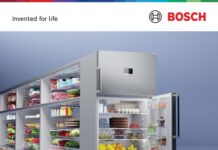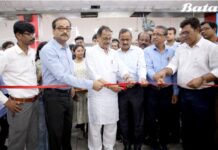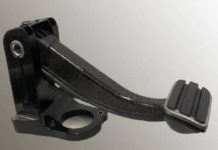New Delhi, June 09, 2018:When Vincenzo Leara of Gpack Group was asked to produce the packaging for the Carolina Herrera fragrance range Good Girl, he was asked to do a
test. Test runs of the same packaging were done first with a well-reputed single-ply paperboard and then with the multi-ply Invercote from Iggesund Paperboard. When the results could be compared, the choice clearly fell on Invercote.
The packaging series for Good Girl requires 12 different production stages. They include gold foil stamping, embossing, partial flockage, foil stamping on flockage, negative embossing and die cutting.
“The raw material’s dimensional stability, durability and creasing ability were particularly important in this case,” Vincenzo explains. “In a multi-stage production process, the dimensional stability is decisive – if the material moves even a fraction, you can have a
misregister late in the process. Then you lose everything, both the material and all the work you’ve done.”
He has over a decade’s experience of producing packaging with extremely high quality demands. Gpack, where he works, has over 50 years of experience. Vincenzo is one of the people who do not immediately consider the material’s price per kilo. Instead, he considers what is called the total cost of ownership.
“With cheaper and often lower quality material, the cost of the material is of course lower,” he says. “But if you also consider the machine set-up time between the various stages, the risks of rejects and of having something go wrong, then the more expensive and higher quality material can easily turn out to be cheaper when you take everything into
account.”
The Carolina Herrera fragrance brand is owned by Puig a third-generation family-owned fashion and fragrance business based in Barcelona, which originally suggested Invercote, but which also considered the results of the test runs. The decisive factors were the
appearance of the creases and also how well defined the edges of the flockage were, which was considered to be important to the packaging’s ability to catch the consumer’s eye at the point of sale.
“Overall we select our foldings brands as prescriptors, in cooperation with our printing partners, but we make the final decisions on which materials to use,” mentions Puig.
“The visible differences represent what you can experience between how a single-ply and how a multi-ply paperboard behave,” Vincenzo Leara continues. “And in my eyes Invercote performed best in terms of structure and resistance.”
The background for this lies in the increased possibilities of variation that result from the multi-ply production process, underlines Invercote product manager Edvin Thurfjell:
“We can control the paperboard’s properties by varying the fibre composition of the different layers. That option is not available to manufacturers of single-ply paperboard.”
Gpak Group was previously called Cartotecnica Goldprint but changed its name in the autumn of 2017. It has four production plants in Italy, one in Poland and the last one is in France: the company Alliora, with a total of 480 employees and a global turnover of over EUR85 million.
Corporate Comm India(CCI Newswire)





























